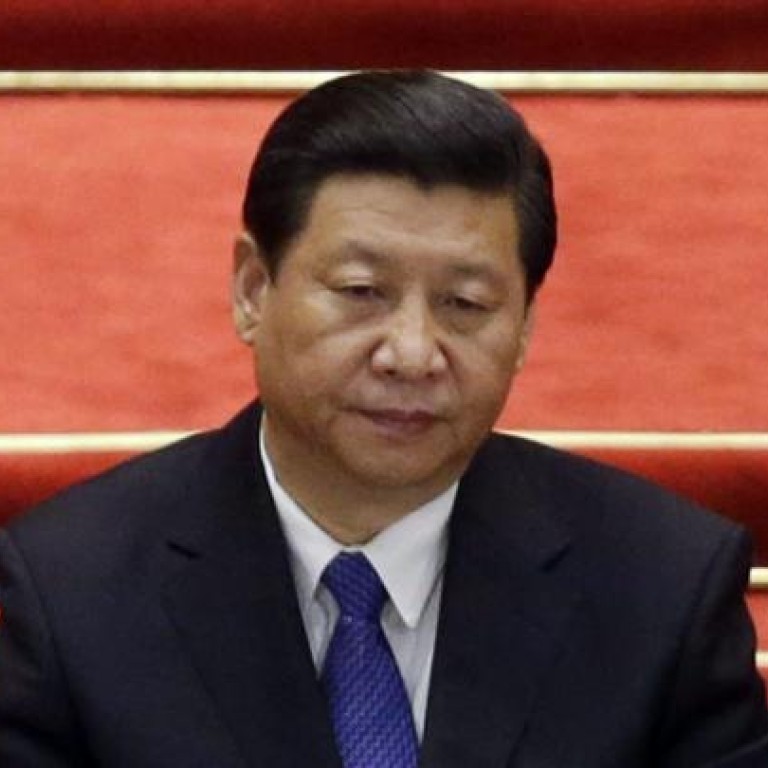
Reins on Shanghai set to be loosened
The commercial capital is expected to be given more freedom to pursue rapid growth and become a global financial and shipping centre
Shanghai officials must have got Xi Jinping's drift when the Communist Party chief encouraged the mainland's most developed metropolis to act as a pacesetter in deepening reform.
Addressing a National People's Congress delegation from Shanghai on Tuesday, the president-in-waiting urged the commercial capital to get back on its feet and engineer bold liberalisation for future development.
It was more than lip service and underscores a profound shift in Beijing's attitude towards Shanghai.
Xi, unlike his predecessor Hu Jintao , spent time in the city's bureaucracy during his climb up the political ladder, with a brief stint as Shanghai party secretary in 2007.
Shanghai government officials said he got along well with his subordinates, including then mayor Han Zheng , following a pension fund scandal that caused the downfall of former Shanghai party boss Chen Liangyu .
Xi also has no reason to feel uncomfortable about the term "Shanghai gang" because he owes his own rise to the top echelon of power through support from former president Jiang Zemin and former vice-president Zeng Qinghong - both members of it.
Xi's reformist outlook always seemed likely to give Shanghai's leaders more sway to speed up development of the city.
In the speech at the Shanghai NPC delegation meeting, Xi likened the courage needed to deepen reform to "gnawing at a hard bone".
His remarks contrasted starkly with Hu's previous emphasis on building a "harmonious society".
Over the past decade, with Hu in charge, Shanghai officials were spooked by fears that any drastic action to further Shanghai's transformation into an international metropolis would upset the central leadership. As a consequence they adopted a cautious approach to economic development.
In terms of economic output, Shanghai has been among the slowest-growing provincial-level regions on the mainland since 2008, even though Premier Wen Jiabao's cabinet endorsed the city's plan to turn itself into a global financial and shipping centre in 2009.
The mainland's most wired city had been on a fast track of growth since 1992 when late paramount leader Deng Xiaoping designated Pudong as an economic beachhead in the Yangtze River Delta.
Shanghai was blessed with the backing of top leaders, including Jiang and former premier Zhu Rongji in the 1990s and early 2000s, with local officials sidestepping central authorities to embark on massive projects such as its metro rail network.
But in order to achieve balanced growth across the nation, Hu and Wen sought to contain Shanghai's dizzying rise after coming to power in 2002.
All that local officials could say was: "Shanghai can't develop as quickly as before due to the central government's tighter grip."
After sacking Chen as the city's party chief, outsiders including Xi and Yu Zhengsheng were nominated to lead Shanghai.
However, it looks as though the new leadership, with Xi at the helm, will loosen the reins on Shanghai as it pursues rapid growth to catch up with Hong Kong, New York and London.
The top two bosses in Shanghai, party secretary Han and newly elected mayor Yang Xiong , both rose through the local bureaucracy.
In January, Yang officially unveiled the city's plan to build the mainland's first free-trade zone, aiming at eventually creating a "mini-Hong Kong".
This week, on the sidelines of the NPC's annual session, he said the municipality was discussing the imminent launch of the project with state authorities.
It is believed that Shanghai will receive the central government's go-ahead this year, with the city well on the way to regaining its previous privileged status.
Major liberalisation moves in the finance and shipping sectors are likely to be endorsed by Beijing in the coming decade to reinforce Shanghai's push to become one of the world's elite cities.

